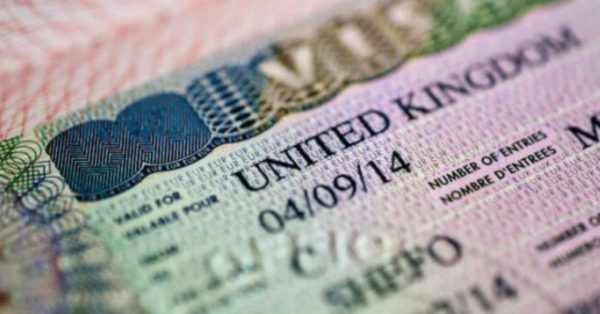
The following is a press release by the Royal African Society.
Home Office Visa Service Discriminating Against Africans
“Home Office data on visa refusals shows that African applicants are more than twice as likely to be refused a UK visa than applicants from any other part of the world. The UK has good relations with most African countries, but it needs to be recognised that no single issue does more damage to the image or influence of the UK in Africa than this visa question.”
After 6 months of evidence gathering, a parliamentary report, published on 16th July by the All-Party Parliamentary Groups (APPG) for Africa, for Malawi and for Diaspora, Development and Migration found the UK visit visa system was not currently fit for purpose, being inaccessible to many Africans, under resourced, unaccountable and widely perceived as biased or even discriminating against Africans.
The report identifies several specific challenges faced by Africans in applying for visas to the UK, including:
- A centralised application system that requires many applicants to travel hundreds, even thousands of miles simply to apply for a visa.
- Weak quality control and lack of oversight leading to erroneous, careless and sometimes offensive decisions.
- Perceived lack of procedural fairness: in many cases additional documentation and evidence is requested over and above that specified in the guidelines, but even then some decisions seem to be arbitrary and illogical.
- Financial discrimination in decision-making: many applications are rejected because the applicant has little money, even though all costs have been guaranteed by a sponsoring third party.
- No right of appeal, requiring expensive re-application to correct a mistaken decision.
Chi Onwurah MP, Chair of the APPG for Africa states: “at a time when the UK needs to be ‘open for business’, the broken visas system is doing severe damage to UK-Africa relations across a variety of sectors. As well as our relations, it damages our economy and society. It is embarrassing, patronising and insulting to African applicants and leaves the slogan of ‘Global Britain’ empty and meaningless.”
The report identifies the real costs to British business, academia, arts and culture from the current dysfunctional system, and puts forward a series of achievable recommendations to UK Visas and Immigration (UKVI) to help them respond to concerns raised by the findings. These include the following:
1. Expedited application processes for those applicants who currently have to travel to a neighbouring country to apply and/or be interviewed for a visa.
2. Clearer information to visa applicants on visa application processes and requirements, especially in terms of supporting documents that must be submitted by the applicant.
3. Where decision-making is fully digitized, ensure documents are scanned in the country of application.
4. Opening more Visa Application Centres (VACs) in countries where they are not currently sited.
A copy of the report is available online here.
ABOUT THE ROYAL AFRICAN SOCIETY
The Royal African Society provides the Secretariat to APPG (All Party Parliamentary Group) for Africa which exists to facilitate mutually beneficial relationships between Africa and the UK and works to further understanding within UK parliament of contemporary African and Pan-African matters. The APPG creates space for parliamentarians to engage in dialogue with African diaspora, civil society, institutions, thought leaders and private sector to promote African led-development agendas and challenge outdated stereotypes through positive relationships between the UK and African countries.
The Royal African Society is a membership organisation that provides opportunities for people to connect, celebrate and engage critically with a wide range of topics and ideas about Africa today. Through our events, publications and digital channels we share insight, instigate debate and facilitate mutual understanding between the UK and Africa. We amplify African voices and interests in academia, business, politics, the arts and education, reaching a network of more than one million people globally.









visa guide August 05, 2019 23:26
applications are rejected because the applicant has little money, they don't trust sponsoring actually applicants must have a extra money for a 3 to 6 months consumption.